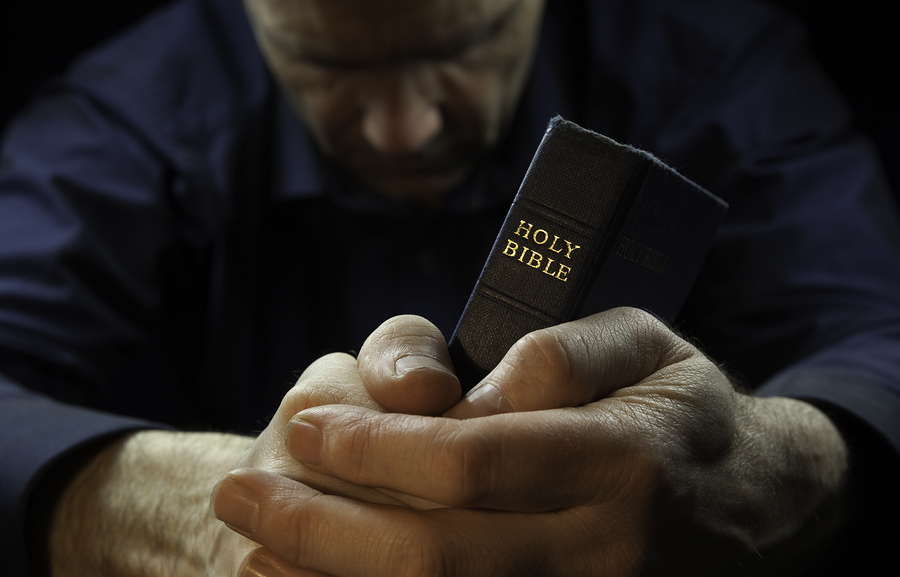
About the author : Antwuan Malone
Antwuan Malone is a Ministry Director at ELEVATE Young Adult Ministry (elevateministry.net) where empowers young adults toward Christian leadership. He is passionate about seeing young adults take their place in church history by drawing near enough to God to hear his call on their life, and courageously living in obedience to that call.
Why Holiness is Not What You Think
Holiness is about living out the lives God made us to live.
Usually, when the holiness conversation comes up, it’s about how diluted the American Church has become or about “holy rollers” and their condescending attitudes. It’s a judgment conversation, complete with jabs and cross punches by both hoity toity Christians and “don’t convict me” seculars and backsliders. It bothers me that holiness and judgment are talked about so closely so often. Makes me wonder if maybe we’re missing the whole point.
Why Am I Here?
God acts with intention. He created you and I on purpose to accomplish specific things. I believe true holiness is about living within the jetstream of that purpose, following the breadcrumbs of our God-given passions, and walking in steps ordered by God.
This means the church must remove holiness from the box we’ve placed it in. Our boxed in understanding of holiness limits the ways God can use us. Christians don’t roll off Heavenly production lines as cookie-cutter, one-size-fits-all copies. Not every Christian has the same heart for things like caring for the poor, visiting the prisons and hospitals, or working in politics.
A minister once referenced Luke 4:18-19 as the explanation for Jesus’ purpose on Earth: namely, to preach the gospel, heal the sick, deliver the captive, and open the eyes of the blind. He went on to say that, because this was Jesus’ purpose, it should also be ours. This is the sort of teaching that gets us into trouble.
First, Jesus’ primary purpose was to take away the sins of the world through His sacrifice. Without the cross, Jesus means little to our spiritual lives no matter how many poor and sick he served. This is not a shared priority. Thus the physical and spiritual preaching, healing, delivering, and opening to which Luke 4 refers is based on the gospel of Jesus’ sacrifice – the good news that because He died, our rightful relational place with God can be restored.
Second, Jesus’ purpose is not our purpose (now it’s my turn to tread a thin line). Not exactly, anyway.
Jesus was holy and we should follow his lead. But if we seek to imitate Jesus’ every action and passion, we might miss the unique purposes God assigned to us – purposes have nothing directly to do with the items listed in Luke 4. Bottlenecking “holiness” in this way softens the voice of God in our hearts when he calls us to something unconventional. It limits God’s use of the body (the church) in the varied functions for which it exists. Even with our own bodies, our eyes serve a very important function. But we also need our hands, mouth, nose and ears. It’s be silly to expect to be able to see from our hands, or out our ears! Seeing is the eye’s job.
When Good Is Bad
When a thing is declared holy, it’s set apart for a greater good. It’s assigned. Designated.
Contrary to popular Christian opinion, holiness is not rooted in moral perfection. When we look closer at the holy life of Jesus, we’ll see he does afford us the luxury of having a clean definition, despite our desire to place it in neat little categories like righteousness, godliness, or moral goodness. True holiness cannot be boxed in that way.
Sometimes (often times) true holiness surprises us, as it did the religious of Jesus’ day. Jesus was holy because He obeyed God’s purpose for His life without slipping off course or following His own ideas of what was good or acceptable. Without, even, following the social definitions of “holy” in his day.
Listen to Jesus when he talks…
-
- With his parents as a boy,”… I must be about my father’s business.”
- In John 5:30, “…because I will not seek my own will, but the will of the Father which hath sent me.”
- In John 8:29, “…the Father hath not left me alone; for I do always those things that please him.”
And in Matthew 7, he chides do-gooders by saying that all who say “Lord, Lord…” will not enter heaven, despite their seemingly “holy” deeds. Jesus even goes so far as to call them “evildoers!” If the amazing deeds mentioned in 7:22 do not qualify as holy deeds, if they could be considered “evil” by Jesus, then what does God want? Jesus answers in verse 21.
“Not every one that saith unto me, Lord, Lord, shall enter into the kingdom of heaven; but he that doeth the will of my father which is in heaven.” (Matt. 7:21, KJV, bold added)
Doing the will of the Father. That is holiness. To fall into the jet stream of God’s will for your life, is to achieve holiness. And such a stream may never have anything directly to do with the poor or the needy, or the prisoners, or the blind.
Do not allow well-intentioned, rigid church definitions of holiness to derail you from the path God has for you. The Enemy doesn’t have to make us all adulterers or murderers. If he can get redirect those God wants to work at universities with the intellectually depraved and searching minds too busy serving the poor in Africa as missionaries, he will have done his job of derailing God’s purposes all the same.
Holiness is aligned with purpose and obedience, not morality or some level of spiritual enlightenment. Holiness is living in the will of God, moving when he says move, staying when he says stay, and trusting enough to obey Him above all else.
Follow God. Live On Purpose, and you will find your holiness.




